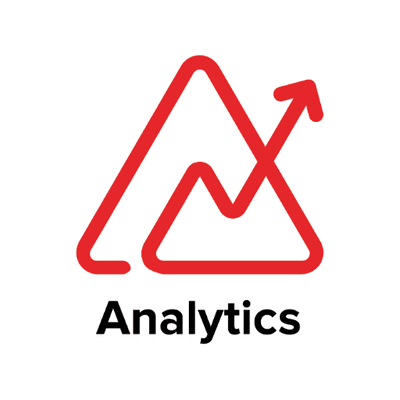Choosing the right analytics tool is like picking a new smartphone. You want something powerful but easy to use, something that makes life simpler, not more complicated. In the vast world of business intelligence (BI) tools, IBM Cognos Analytics and Zoho Analytics stand out. But which one is right for you? Whether you’re a data analyst, a business owner, or just someone who loves to make informed decisions, join me as we dive deep into the heart of these platforms. We’ll explore, compare, and finally uncover which tool can best transform your data into actionable insights. Let’s make this journey together, navigating through the sea of features, ease of use, scalability, and much more, all to help you make the perfect choice for your analytics needs.
| IBM Cognos Analytics | Zoho Analytics |
|---|---|
 |  |
| G2 Score – 4.0 out of 5 stars | G2 Score – 4.3 out of 5 stars |
| TrustRadius Score – 8.1/10 | TrustRadius Score – 8.1/10 |
Ease of Use and User Experience
When it comes to choosing an analytics tool, the ease of use and overall user experience are as crucial as the features themselves. After all, the most powerful tool in the world won’t do you much good if it’s too complicated to use. Let’s take a closer look at how IBM Cognos Analytics and Zoho Analytics stack up in this department.
IBM Cognos Analytics: A Deep Dive
IBM Cognos Analytics is like the Swiss Army knife of BI tools – packed with features and capabilities. It’s designed with the enterprise in mind, offering a robust, comprehensive solution for data analysis, reporting, and visualization. However, with great power comes a bit of complexity. New users might find themselves navigating a steep learning curve as they get to grips with the system’s extensive functionalities.
That said, IBM has made significant strides in improving the user interface (UI) to make it more intuitive. The platform now offers guided tutorials, an interactive assistant, and a more streamlined dashboard creation process. These improvements have made Cognos more accessible to a broader audience, but it still requires a certain level of commitment to fully master its depth.
Zoho Analytics: Simplicity Meets Power
On the flip side, Zoho Analytics prioritizes user experience and simplicity without skimping on powerful analytics capabilities. It’s designed to be intuitive from the get-go, with a drag-and-drop interface that makes report creation and data visualization a breeze. Even those with minimal BI tool experience can find their way around Zoho Analytics relatively quickly.
Zoho’s commitment to a user-friendly platform does not mean it lacks depth. The tool offers a wide range of analytics features, including predictive analytics, AI-powered insights, and an extensive set of integrations with other Zoho products and external data sources. The difference lies in how these features are presented and accessed, making Zoho Analytics particularly appealing to small and medium-sized businesses or teams without dedicated data analysts.
Integration Capabilities and Data Connectivity
IBM Cognos Analytics: Robust and Wide-Ranging Integration
IBM Cognos Analytics showcases its strength in integration capabilities and data connectivity by providing a robust framework designed to accommodate the complex data ecosystems typical of large enterprises. The platform is engineered to seamlessly connect with a wide array of data sources, including traditional databases, cloud storage solutions, and real-time data streams, ensuring that users can access and analyze their data regardless of where it is stored.
This comprehensive connectivity is bolstered by advanced data modeling tools that allow users to transform and prepare their data across disparate sources for in-depth analysis. Cognos’s emphasis on flexibility and scalability in data integration supports a holistic view of an organization’s data landscape, enabling deep insights and informed decision-making. The platform’s capacity to handle vast volumes and varieties of data, coupled with its sophisticated data management capabilities, positions IBM Cognos Analytics as a premier choice for organizations with extensive and diverse data integration needs.
Zoho Analytics: Streamlined and User-Centric Connectivity
Zoho Analytics approaches data connectivity with a focus on simplicity and user convenience, targeting small to medium-sized businesses that may not have the same level of complexity in their data systems as large enterprises. The platform offers seamless integration with a wide range of Zoho applications, making it an ideal choice for businesses already vested in the Zoho ecosystem. Beyond this, Zoho Analytics also supports connections to popular third-party applications and databases, including social media platforms, cloud storage services, and online marketing tools.
One of Zoho Analytics’ standout features is its ability to automate data sync, allowing users to schedule data imports from various sources. This automation ensures that the data within Zoho Analytics is always up to date, providing users with real-time insights into their business operations. The platform’s emphasis on ease of use extends to its data connectivity features, enabling users to integrate their data sources without needing extensive technical expertise.
Customization and Flexibility
IBM Cognos Analytics: Comprehensive Customization for Complex Needs
IBM Cognos Analytics stands as a beacon of customization, offering a broad spectrum of options that cater to the intricate needs of large enterprises. Its platform is designed for depth, allowing users to dive into the minutiae of their data and reports with a high degree of control. From creating bespoke reports and dashboards to tailoring the analytics environment itself, Cognos provides the tools necessary for businesses to mold the platform to their exact specifications.
The flexibility of Cognos extends beyond just the visual aspects; it encompasses the entire analytics workflow, including data preparation, analysis, and distribution. Users can define custom data models, create sophisticated analytical expressions, and even automate reporting processes to fit their operational rhythms. This level of customization is invaluable for organizations with complex reporting requirements and unique analytical needs.
Zoho Analytics: Streamlined Customization for Agility
Zoho Analytics approaches customization with a focus on agility and user-friendliness, aiming to deliver a flexible analytics solution that can quickly adapt to the evolving needs of small to medium-sized businesses. The platform offers a variety of customization options, from the look and feel of reports and dashboards to the configuration of data alerts and sharing settings. These features are designed to be accessible to users without deep technical expertise, enabling businesses to tailor their analytics processes with ease.
While Zoho Analytics may not offer the same depth of customization as Cognos, it strikes a balance between flexibility and simplicity, ensuring that users can personalize their analytics experience without being overwhelmed by complexity. This approach is particularly appealing to businesses looking for a solution that can be quickly adapted as their needs change, without requiring extensive development resources.

Related: Check out our free SEO suite

Security and Compliance
IBM Cognos Analytics: Enterprise-Grade Security
IBM Cognos Analytics benefits from IBM’s extensive experience in dealing with enterprise-level security requirements and compliance demands. The platform is fortified with a comprehensive suite of security features designed to protect sensitive data across various industries, including finance, healthcare, and government sectors. This includes advanced encryption techniques to safeguard data both at rest and in transit, rigorous access controls to ensure that only authorized users can view or manipulate data, and detailed audit trails that track user activity across the platform.
Furthermore, IBM Cognos Analytics aligns with a wide array of international and industry-specific regulatory standards, offering features that help organizations comply with laws and regulations such as GDPR, HIPAA, and SOC 2. The commitment to security and compliance is deep-rooted, with regular updates and patches to address emerging threats and vulnerabilities, reflecting IBM’s understanding of the critical importance of data security in today’s digital landscape.
Zoho Analytics: Strong Security with a Focus on SMBs
In contrast, Zoho Analytics approaches security and compliance with a strategy that balances robust protection with the ease of use. Aimed primarily at small to medium-sized businesses, Zoho Analytics implements strong security measures that safeguard data without necessitating a heavy IT infrastructure. This includes using high-grade encryption to secure data stored within the platform and during transmission, employing OAuth2.0 protocols for secure authentication processes, and providing role-based access control to manage user permissions effectively.
Zoho’s compliance efforts are equally noteworthy, with the platform meeting key global standards such as GDPR and boasting certifications like ISO/IEC 27001. Zoho Analytics also makes it simpler for businesses to adhere to compliance requirements by offering built-in tools and features designed to facilitate data privacy, security audits, and compliance reporting. This approach underscores Zoho’s commitment to providing a secure analytics environment that is accessible to businesses of all sizes, without the complexity that often accompanies enterprise-grade security solutions.
Collaboration and Sharing Capabilities
IBM Cognos Analytics
Has been developed with enterprise environments in mind, where collaboration across different departments and teams is a regular necessity. It offers robust sharing and collaboration features that allow users to distribute reports and dashboards securely within the organization. The platform supports scheduled reporting, which can automate the delivery of insights directly to stakeholders’ inboxes, ensuring that key decision-makers have timely access to relevant data. Furthermore, Cognos Analytics enables users to embed reports and dashboards into external applications and portals, extending the reach of data insights beyond the confines of the analytics platform. This is particularly beneficial for organizations that rely on a centralized portal for business operations and decision-making.
Zoho Analytics
Approaches collaboration by leveraging its cloud-native architecture to offer real-time sharing and collaborative data analysis. The platform allows users to share reports and dashboards with both internal and external stakeholders, providing granular control over permissions and access. This ensures that sensitive data remains protected while still facilitating collaborative analysis. Zoho Analytics also features commenting and annotation tools within shared reports, enabling teams to discuss insights and make decisions directly within the context of the data. Additionally, its integration with productivity and communication tools further streamlines the collaborative process, making it easier for teams to stay aligned and informed, regardless of their physical location.
Cost and Pricing Structure
IBM Cognos Analytics: Enterprise-Level Investment

IBM Cognos Analytics is positioned as a premium solution, with a pricing structure that reflects its enterprise-targeted offering. It’s designed for organizations that require a robust, scalable analytics solution capable of handling complex data across various departments. The platform is available through a tiered pricing model, which includes different levels based on features, the number of users, and the extent of data capacity needed.
The investment in Cognos Analytics can be significant, especially for larger implementations that require advanced features, such as predictive analytics and automated AI-driven insights. However, this cost is often justified by the depth of analysis, extensive integration capabilities, and scalability that Cognos provides. Enterprises that rely heavily on data-driven decision-making processes may find the return on investment (ROI) aligns with the initial and ongoing costs associated with the platform.
Zoho Analytics: SMB-Friendly Pricing

In contrast, Zoho Analytics offers a more accessible pricing model tailored to small and medium-sized businesses (SMBs). The platform operates on a subscription-based model, with various tiers that scale based on the number of users, reports, and the volume of data processed. This flexible approach allows businesses to start with a basic plan and scale up as their analytics needs grow, without making a substantial initial investment.
Zoho Analytics is particularly attractive for SMBs or startups that are looking for a powerful yet affordable analytics solution. The platform provides a comprehensive set of features even at lower-tier plans, including dashboard creation, data visualization, and integration with both Zoho apps and external data sources. The cost-effectiveness of Zoho Analytics makes it a compelling option for businesses that need to balance functionality with budget considerations.
Conclusion
IBM Cognos Analytics emerges as a robust, enterprise-grade solution, offering deep analytical capabilities, extensive customization, and a strong emphasis on security and compliance. Its sophisticated platform is designed for large organizations with complex data needs, providing the infrastructure necessary for detailed, predictive analytics and comprehensive data integration. However, this sophistication comes with a steeper learning curve, making it more suited for users with a strong background in data analysis.
Conversely, Zoho Analytics is celebrated for its user-friendly interface, agility, and emphasis on collaboration and real-time insights. It offers a more accessible entry point into data analytics, making it an ideal choice for small to medium-sized businesses or teams without specialized data expertise. Zoho Analytics facilitates quick, informed decision-making through its intuitive platform, without sacrificing the depth of analysis smaller teams need to thrive.
Read Next:
- The Evolution of Mobile Content: Adapting to On-the-Go Audiences
- Content Marketing for Local Businesses: Strategies for Community Engagement
- The Role of Visual Storytelling in Modern Content Marketing
- A/B Testing Your Content: Strategies for Optimization and Improvement
- 31+ Top Social Media Management tools Compared! (2023)






















Comments are closed.